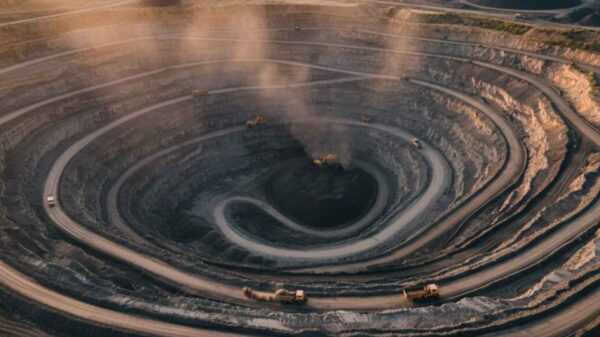
SYDNEY— The third edition of Procore Technologies’ construction industry benchmark report, How We Build Now, was issued today by Procore Technologies, Inc., a major global provider of construction management software. Despite severe obstacles, 85 percent of Australian respondents are optimistic about the next 12 months, up from 43% in April 2020. Despite its optimism, Australia lags behind the APAC average of 91 percent and is equally behind the curve in terms of technology use.
“While the Australian construction industry has proven to be extraordinarily resilient, there are lessons to be learned from our Asia Pacific neighbours,” said Tom Karemacher, vice president of Procore Technologies’ Asia Pacific region. “We discovered a direct link between favourable industrial sentiment and the ambition to use technology, with ASEAN countries leading the way in this regard,” says the report. This enthusiasm should serve as an example to the Australian construction industry, emphasising the importance of digital transformation in alleviating critical industry stresses and fostering growth.”
Despite facing skill shortages, construction bans, and rising material costs over the past two years, the report highlights how these challenges have continued to serve as a catalyst for technology investment, with more than two-fifths (43%) of Australian respondents agreeing that the pandemic has accelerated their adoption of digital technology. This represents a continuous rise from the 39% who changed technologies, systems, and processes in 2020. However, there are still considerable obstacles to digitalization, the most significant of which being the need to change existing practises and behaviours.
The research also found that the Australian construction industry takes a very pragmatic approach to technology adoption. Cutting-edge technology like 3D printing, robotics, and drones, according to the respondents, are less likely to cause industry transformation than more tried-and-true technologies like big data and digital project management platforms. Simply by managing data more efficiently, Australian builders anticipate to save an average of 13% on total project costs.
Australia lags behind the rest of APAC in terms of digital maturity, with lower adoption rates for everything from BIM to big data, prefabrication to robotics. Furthermore, a lesser proportion of Australian construction firms want to use digital technologies than their regional counterparts. Businesses in New Zealand, for example, are nearly twice as likely as their Australian counterparts (24%) to feel that next-generation BIM technology will create transformation.
“The challenge is to bring all segments of the industry along on this journey,” Hannah Morton, associate with global sustainable engineering consultant Cundall, said. From early feasibility, design development, and modelling, to project management, procurement, and post-construction commissioning and verification, I believe technology is a valuable asset.”
Despite being behind on digital adoption across the board, Australia and New Zealand had the highest rate of site-specific safety plans, setting a high bar for health and safety.
Rework in Australia is being curtailed – On average, an Australian construction company spends one out of every eight hours (12 percent of its total time) on rework. This is an encouraging decrease from 18% in 2020, and 43% of construction decision-makers feel that technology will help them save money by reducing errors. The Australian construction industry spends the least amount of time on rework of any of the five markets studied.
Australia has the lowest priority for sustainability – Less than half of Australian respondents (48%) believe the construction industry should adopt more green building techniques, the lowest of the five markets studied and second only to New Zealand (64%) in terms of green building practises.
Growing costs and a skills shortage are the top issues – rising costs of materials and equipment are the top concern for 63 percent of respondents (up from 40 percent in 2020), followed by a skills shortage and shrinking profit margins.
Gender diversity must be improved – diversity and innovation are inextricably linked. Despite the fact that Australian construction organisations have a high rate of diversity and inclusion policies, women hold only one out of every five construction jobs. Furthermore, 61% did not believe it was necessary to improve this.
Regardless of business size, paper is still widely utilised by Australian builders for site activity records (29 percent), the environment (27 percent), and estimating and pricing (26 percent) operations. In each of these processes, New Zealand enterprises are less likely to use paper.
“We see distinct issues growing for the building industry every time we do the How We Build Now study.” At their foundation, the most tenacious and forward-thinking businesses rely on technology to boost productivity and profitability. “As our first APAC-wide analysis, we believe that it will give organisations a clear picture of where they stand in the sector and how they may improve by evaluating themselves not only against their Australian peers, but also against those in neighbouring countries,” Karemacher added.
The research behind How We Build Now – Tracking Technology in Asia Pacific Construction in 2022, the third in an annual ‘benchmark series,’ was done by independent polling firm YouGov. Following the previous two editions in 2019 and 2020, which focused on the Australian sector, this year’s survey has been expanded to include five markets. For this analysis, 1,138 building decision-makers and influencers from Australia (314), Malaysia (223), New Zealand (114), the Philippines (259) and Singapore were polled (228).
On May 31, YouGov, SafeWork NSW, Cundall, Meriton, and Fletcher Construction Company held an event in Sydney to officially announce the findings.
Concerning Procore
Procore is one of the most well-known names in the construction management software industry. Procore’s technology has handled over one million projects and over $1 trillion in construction volume. Procore’s platform connects key project stakeholders to Procore solutions designed exclusively for the construction industry, including solutions for the owner, general contractor, and specialty contractor. Procore’s App Marketplace offers a wide range of partner solutions that effortlessly integrate with Procore’s platform, allowing construction professionals to connect with what works best for them. Procore is headquartered in Carpinteria, California, and has offices all around the world.
Construction, Infrastructure & Mining Group Media Publications
https://anyflix.in/, https://legalmatters.in/ & https://ihtlive.com/

%208.png)
.png)
.png)







.png)
.jpg)




